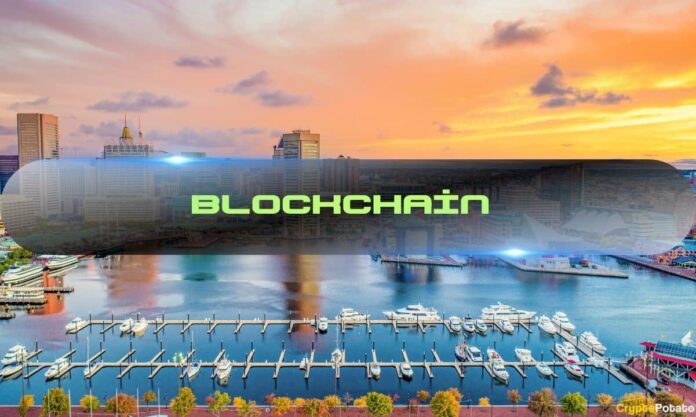Foreclosing on a vacant home in Baltimore can take two to three years, according to a report in the Baltimore Sun. It’s a legally arduous process in Maryland.
Foreclosure requires city officials to wait on title searches to verify the entire ownership history of the house.
As a result of the multiple title searches required for each step in the process of acquiring, fixing up, and selling a home, you’d be lucky to get everything done in four or five months. Meanwhile, the vacant home can attract critters, crime, and hazardous conditions.
Baltimore Orders Home Real Estate Blockchain
But the city is hoping to solve this with a $225,000 blockchain project. Its spending board agreed to the contract for it in December. The Baltimore Sun reports:
“Over the three-year pilot, Medici Land Governance will input records for the city’s roughly 13,600 vacant properties into a blockchain, building a database more secure than the system currently used by the city and also more efficient.”
Blockchain techniques can reliably verify ownership of metaverse real estate in Decentraland (MANA). As it turns out, the technology can also keep records for real estate in North America.
Baltimore solicitor Ebony Thompson says the city will now keep an immutable chain of custody so that there’s no need for multiple title searches. The city can now certify homes more quickly as they change hands to new developers and residents.
On-Chain Real Estate’s $9.3 Trillion Opportunity
Former U.S. president Bill Clinton once praised Peruvian economist Hernando de Soto as the greatest living economist. De Soto wrote in his bestselling book “The Mystery of Capital” that the cost and time it takes governments to keep accurate real estate records is one of the biggest obstacles to economic development, especially in the third world.
De Soto argued in his book that well-developed systems for maintaining property rights were key to the first world’s wealth explosion. Thompson Reuters Foundation reported in 2016:
“For the 5.3 billion who do not have such rights, the implications are stark: people are unable to leverage their resources to create wealth, and their assets become “dead capital” which cannot be used to generate income or growth.”
Baltimore is showing how blockchain can address this persistent problem. It could help third-world citizens to capitalize on their property. By recording ownership and opening liquidity, smart contracts could help the world’s poor draw lines of credit against their homes. This is one of the most common ways new businesses get the start-up funds they need to scale.
De Soto estimated in 2016 that providing impoverished populations with property deeds for their land, homes, and unregistered businesses would unlock $9.3 trillion in frozen assets and turn them into capital for the world’s poor.
Binance Free $100 (Exclusive): Use this link to register and receive $100 free and 10% off fees on Binance Futures first month (terms).
Credit: Source link






















 Bitcoin
Bitcoin  Ethereum
Ethereum  Tether
Tether  Solana
Solana  USDC
USDC  Lido Staked Ether
Lido Staked Ether  XRP
XRP  Dogecoin
Dogecoin  Toncoin
Toncoin  Cardano
Cardano  Shiba Inu
Shiba Inu  Avalanche
Avalanche  TRON
TRON  Wrapped Bitcoin
Wrapped Bitcoin  Bitcoin Cash
Bitcoin Cash  Polkadot
Polkadot  Chainlink
Chainlink  NEAR Protocol
NEAR Protocol  Polygon
Polygon  Internet Computer
Internet Computer  Litecoin
Litecoin  Uniswap
Uniswap  LEO Token
LEO Token  Dai
Dai  First Digital USD
First Digital USD  Ethereum Classic
Ethereum Classic  Aptos
Aptos  Hedera
Hedera  Stacks
Stacks  Mantle
Mantle  Cronos
Cronos  Stellar
Stellar  Filecoin
Filecoin  Renzo Restaked ETH
Renzo Restaked ETH  Cosmos Hub
Cosmos Hub  Render
Render  OKB
OKB  Pepe
Pepe  Immutable
Immutable  XT.com
XT.com  Arbitrum
Arbitrum  Bittensor
Bittensor  Maker
Maker  Optimism
Optimism  dogwifhat
dogwifhat  Wrapped eETH
Wrapped eETH  The Graph
The Graph 
